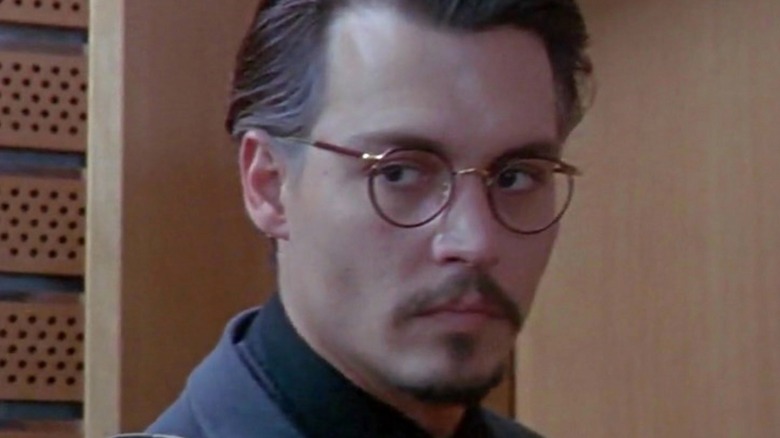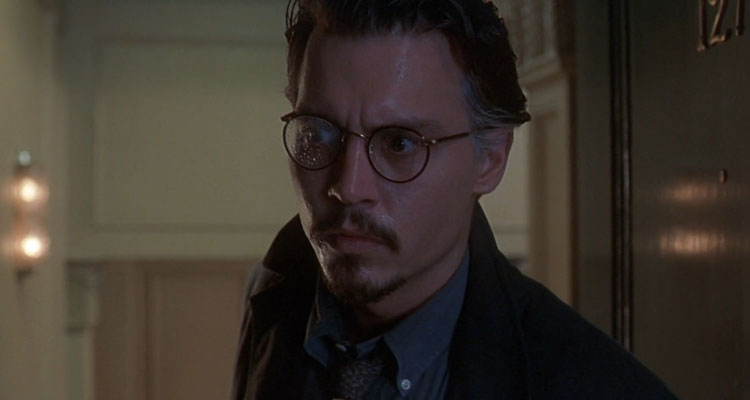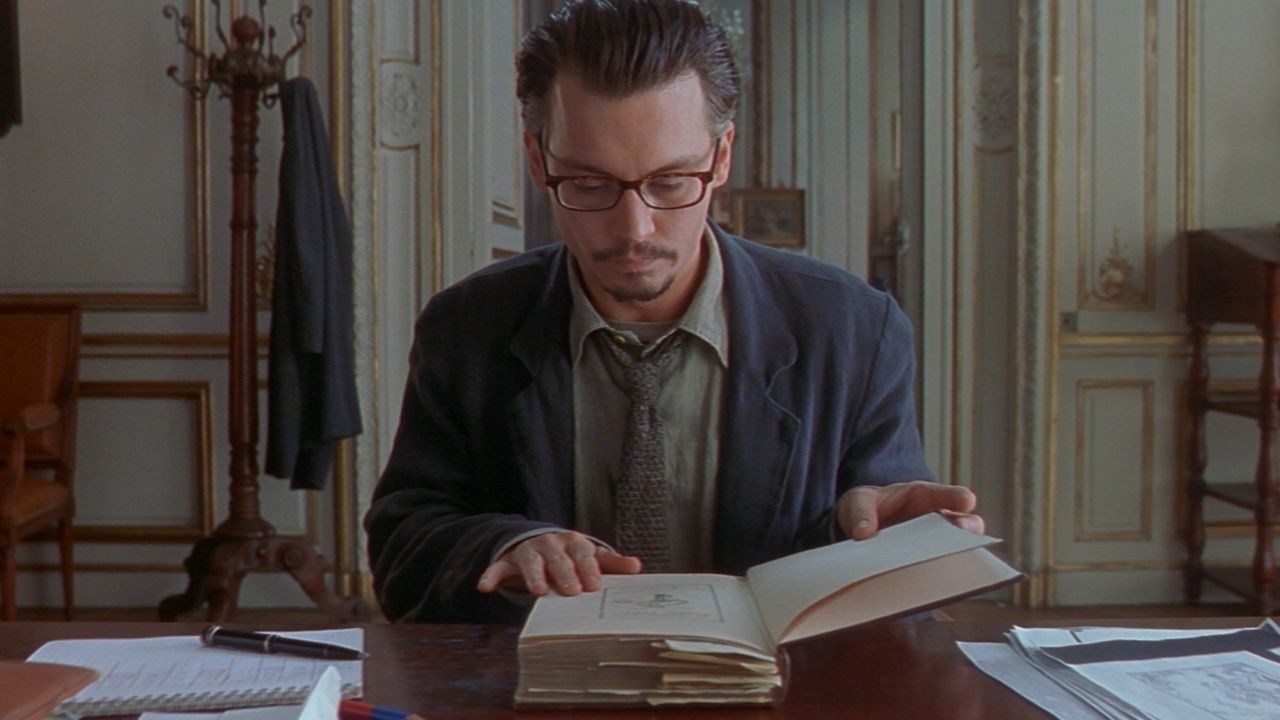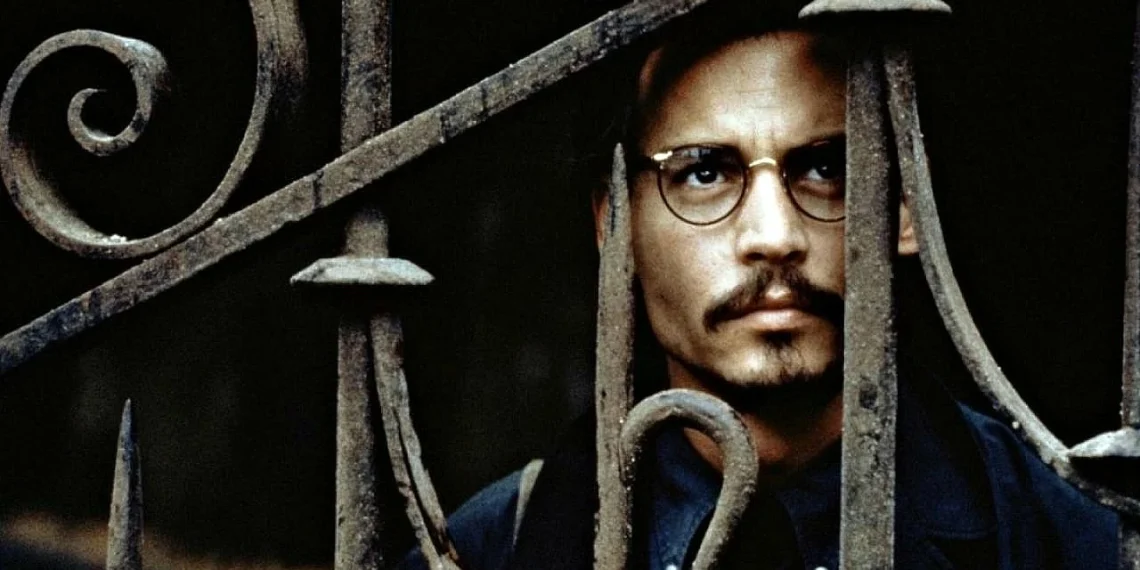The ending of The Ninth Gate invites numerous interpretations, blending skepticism and fanaticism in a dark and unexpected manner. The movie’s conclusion highlights the contrast between Boris’s firm belief in summoning the Devil and Dean’s skeptical outlook, ultimately resulting in a twist that shifts the skeptical character to the central role of the plot’s resolution. Despite mixed reviews, the film offers a profound exploration of supernatural themes and the influence of belief.
Directed by Roman Polanski, The Ninth Gate features Johnny Depp in a role often overshadowed by other films in his career. Depp portrays Dean Corso, a rare book dealer who is hired by the wealthy Boris Balkan, played by Frank Langella. Balkan seeks all existing copies of The Nine Gates of the Kingdom of Shadows, an ancient text believed to hold the key to summoning the Devil. Dean’s journey, driven solely by financial gain, takes a darker, more psychological turn, forcing both him and the audience to confront unsettling truths.
The film’s eerie atmosphere and its exploration of religious fervor are reminiscent of Polanski’s earlier works, such as Rosemary’s Baby. Although The Ninth Gate lacks the philosophical depth and sheer dread of that film, it still provides an intense study of belief and skepticism. The film’s ending, often criticized for being unclear, reveals a more thought-provoking layer upon deeper analysis.

The Ninth Gate Ending Explained
Dean’s search for the remaining copies of the book reveals an unsettling truth: three engravings in the books are signed “L.C.F.,” while the others are signed “A.T.” for Aristide Torchia, the book’s original author. Boris suggests that the Devil himself helped Torchia write the books, and though Dean doesn’t fully believe it, he starts to suspect that “L.C.F.” stands for Lucifer. Upon traveling to Portugal, Dean finds the last book, only to realize that Boris has been following him the entire time.
In a incredible turn, Boris interrupts a Satanic ritual involving the books. To Dean’s horror, Boris murders the previous owners of one copy before escaping with the three essential books. Dean, now caught in a conspiracy he doesn’t understand, follows Boris to a remote church, where the ritual is set to unfold. Whether Dean intends to stop, confront, or merely observe the ritual remains unclear. He becomes an unwilling participant in the unfolding events, eventually forced to watch as Boris performs the ritual using the nine engravings marked with “L.C.F.”
The Ninth Gate’s Power Revealed
The nine gates in The Ninth Gate appear to offer Boris the power and immortality he desires. As he brushes his hands through a fire without harm, the gates seem to grant him a supernatural ability. However, when Boris creates a circle of flames to enhance his ritual, Dean becomes trapped in a hole in the floor, unable to escape. When Boris douses himself in gasoline and sets himself on fire, his initial triumph turns to horror as he realizes the ritual has failed.
As Boris burns, Dean manages to free himself and grabs the engravings. In an act of finality, he retrieves a gun and puts Boris out of his misery. Despite Boris’s intense belief in the Devil and his willingness to sacrifice others, the events show that logic and skepticism prevail. The Devil, after all, cannot be summoned, and it is not supernatural forces, but a bullet, that brings about death.

The Girl’s Mysterious Role
A strange, mysterious character in the film is the Girl, played by Emmanuelle Seigner. She appears throughout Dean’s journey, offering help in his search for the books. After Dean narrowly escapes from the burning castle, the Girl reappears in his car and kisses him. What follows is an intimate scene between the two, set against the backdrop of the blazing castle, as they engage in a passionate encounter.
The Girl then disappears, leaving behind a note instructing Dean to visit an abandoned shop. There, he finds the final engraving hidden behind a dusty bookcase. The engraving depicts a woman who bears a striking resemblance to the Girl, seated naked on a dragon-like creature. This image is remarkably similar to the biblical Whore of Babylon from the Book of Revelation, symbolizing the final piece necessary to complete the ritual. Dean realizes, to his that he has become involved in a ritual he never intended and didn’t believe in.
The Real Meaning Behind the Ending
The Ninth Gate serves as a narrative exploration of skepticism and fanaticism, highlighting how these two seemingly opposing views on religion can converge. Throughout the film, Dean remains a staunch non-believer. He dismisses Boris’s belief in the Devil as absurd, focusing only on the financial rewards he stands to gain. Even as increasingly supernatural events unfold, Dean clings to his cold, logical worldview, unwilling to accept anything beyond the material.
On the other hand, Boris fully embraces the existence of forces beyond human comprehension, believing that he can exploit them for his own gain. When Boris dies in the fire, it seems to affirm Dean’s perspective: the Devil doesn’t exist, and blind faith leads to a painful end. However, the final moments of The Ninth Gate challenge this interpretation.

Dean’s encounter with the Girl, the near-religious experience of their intimacy, and the discovery of the final engraving force him to confront a new reality. Dean, the skeptic, becomes the key to opening the Ninth Gate. While Boris’s devotion to the Devil results in his death, Dean’s disbelief makes him a more significant target for dark forces. The movie suggests that belief in the impossible, without falling into blind fanaticism, is what allows the Devil’s power to manifest.
Reception and Criticism of the Ending
Despite its ambitious themes, The Ninth Gate received mixed reviews. On Rotten Tomatoes, the film holds a 43% critic rating, with an audience score of 58%, signaling that it didn’t resonate with many viewers. Renowned critic Roger Ebert gave the film two stars, expressing his disappointment with the conclusion. He noted that while the film initially showed promise, the final scene left him unsatisfied, offering more questions than answers.
The Ninth Gate remains a polarizing film, with its haunting ending leaving audiences to question the nature of belief, skepticism, and the power of the supernatural.





